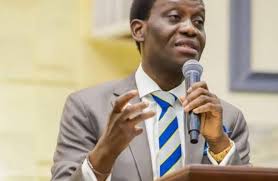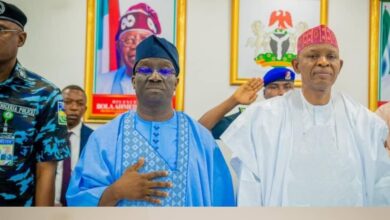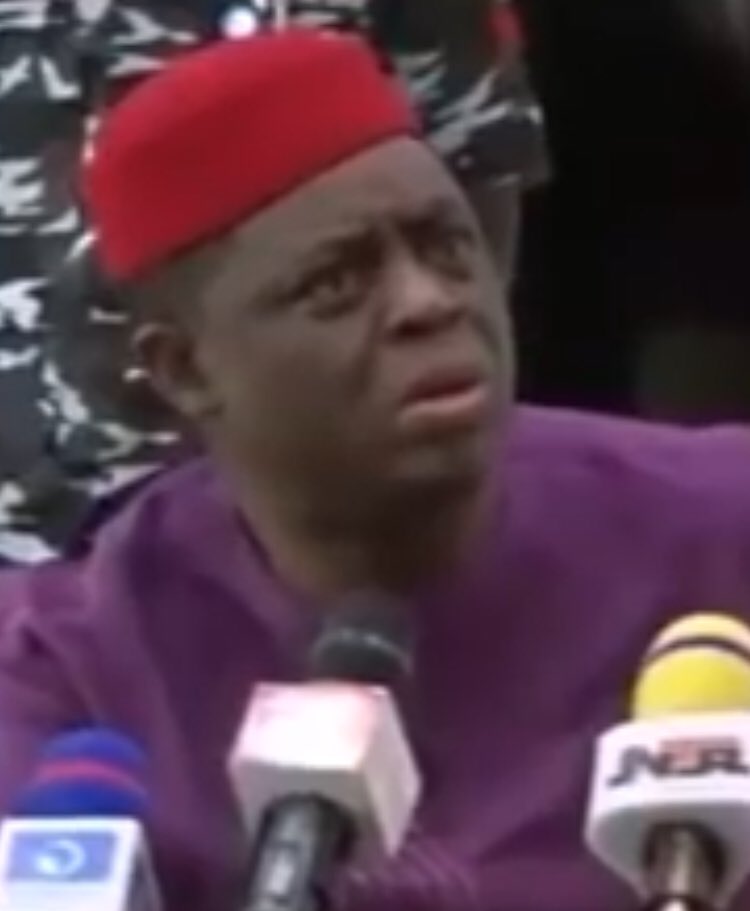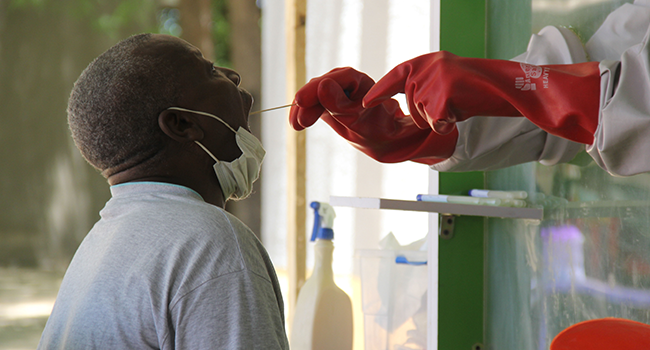ASUU: Buhari orders Ngige to hands off negotiation
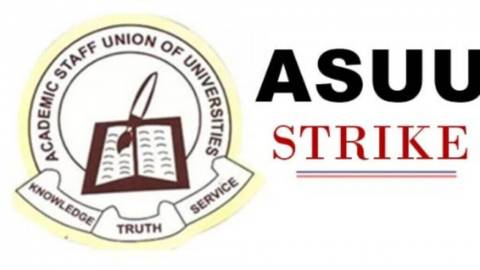
Education minister gets 14 days to resolve crisis
N1m monthly pay likely for professor
ASUU: govt doesn’t need 2 weeks to end strike
SSANU warns against disparity in salaries
University teachers won a major battle yesterday: the government is ready to meet most of their demands.
Minister of Education Mallam Adamu Adamu got marching orders from President Muhammadu Buhari to end the industrial actions by university-based unions.
The President also directed the Minister of Labour and Employment, Dr. Chris Ngige, to hands off negotiations with the Academic Staff Union of Universities (ASUU).
Ngige’s role will only be limited to a conciliator when it is necessary.
ASUU had repeatedly accused Ngige of blackmail and being a stumbling block to the negotiations.
The President met with some ministers and heads of Federal Government agencies involved in the negotiations at the Presidential Villa.
He directed that the ongoing negotiation between the Federal Government and ASUU must be finalised within two to three weeks.
He ordered Adamu to henceforth coordinate, lead talks and harmonise terms with ASUU immediately.
Adamu was also mandated to meet with the National Salaries and Wages Commission to work out payment details for the striking lecturers.
ASUU said it was open to considering the 100 per cent pay rise being proposed by the Federal Government.
The union, however, said the government was yet to reach out to it on the new pay offer.
The Nation exclusively reported yesterday that a 100 per cent pay rise was being put forward and that the President had waded into the crisis.
But there is more cause for optimism as universities may also immediately get over N320billion revitalisation funds out of the outstanding N1.3trillion promised by the administration of President Goodluck Jonathan.
According to a reliable source, who spoke in confidence, Buhari stamped his feet at a session he had with Adamu and Dr Ngige in the Presidential Villa.
The source described the meeting as “frank and emotional” because the President wanted an immediate solution to the closure of universities.
The source said having discovered errors in the negotiation modules, President Buhari asked the Minister of Education to “henceforth coordinate, lead talks and harmonise terms with ASUU immediately.”
The source added: “Before the session, the President had received from Adamu the report of the Federal Renegotiation Team and ASUU, which contained some vital recommendations to resolve the six-month industrial action.
“Having reviewed the efforts made by the two ministers and all agencies, Buhari said the talks should now be handled by the Minister of Education, who raised Prof. Nimi Briggs 2009 FG-ASUU Agreement Renegotiation Team.
“The final stage of the pact with ASUU will now be domiciled in the Ministry of Education.
“But the Minister of Labour will now serve as a conciliator between the two parties if there are issues.
“Buhari put a caveat that the terms of the agreement between the Federal Government and ASUU must be completed within two to three weeks so that universities can reopen.”
It was learnt that Adamu met with Federal Government Renegotiation Team after his shuttle to the Presidential Villa.
A government source, who spoke in confidence, said the Buhari administration has agreed to pay enhanced salaries to the lecturers and it may release a quarter of the outstanding N1.3trillion revitalisation funds agreed by the administration of ex-President Goodluck Jonathan.
The source added: “About N320billion Revitalisation Funds may soon be released to universities.
“The government, through the Federal Ministry of Education, asked the National Universities Commission (NUC) to do a comparison of the salary scale of Professors in some African countries.
“The review of pay in some countries was to enable how much increase the nation’s economic shock can accommodate.
“The NUC was forthright in saying that the pay of a Professor in Nigeria was low than in other countries.
Read Also: Labour plans two-day protest over ASUU strike
“Some of the monthly pay highlights of a professor were as follows: South Africa ($5,200) for a Professor; Rwanda ($2,900); Uganda/Ghana ($1,000); Kenya ($2,000); Nigeria ($690).
“The government has accepted to increase the pay of a varsity professor to $1,300 per month.
“The Minister of Education, the National Salaries and Wages Commission, the Federal Ministry of Finance and other agencies will now work out modalities for the payment of the enhanced salaries.”
Among those at the meeting with the President were Adamu, Minister of Finance, Budget and National Planning Dr. Zainab Ahmed; Dr Ngige and the Minister of Communications and Digital Economy, Isa Pantami.
Others were the Head of Service of the Federation, Dr. Folashade Yemi-Esan; Chairman of National Salaries Income and Wages Commission Ekpo Nta and the Director-General, Budget Office, Ben Akabueze.
ASUU: We’ll consider proposal
ASUU President Prof Emmanuel Osodeke and his predecessor, Dr Nasir Fagge, at a briefing at ASUU National Headquarters in Abuja, said the union was waiting for the signing of the agreement that was reached.
According to Fagge, the union was waiting for the government to give approval to the Briggs committee to sign the draft deal.
He said: “We have negotiated with a duly mandated committee appointed by the government and we have reached a draft agreement.
“We are waiting for this committee to get the final nod of the Federal Government to sign off this agreement and commence implementation.
“However, the 100 per cent pay rise proposal is not before us.
“If the government has this proposal, it knows the channels through which it will forward it to us and at that point, we will look at it and decide appropriately.
“We started this process in 2017 when there was a problem with the Wale Babalakin Committee.
“The government itself removed him and replaced him with another (Prof Jubril Munzali) committee.
“We reached an agreement, but the government said it had a problem with that agreement.
“They reconstituted the committee again, led by Nimi Briggs, and we have concluded this system.
“All we are waiting for is the final consultation with those that gave the two parties the mandate to negotiate.”
Osodeke said the union would not be stampeded or blackmailed.
He also said the government did not need two weeks to end the strike as President Buhari mandated Adamu to ensure.
Osodeke insisted that the union would call off the strike once the government agreed to sign the re-negotiated 2009 agreement.
He said ASUU would not be blackmailed or be stampeded by lies against it by Ngige.
“They stopped our salaries thinking they will make us go back to work. Let them sit down as directed by the President,” he said.
Planned protest gets boost
Also yesterday, a non-governmental organisation, the Education Rights Campaign (ERC), said it would join the Nigeria Labour Congress (NLC) in the two-day pro-ASUU protest.
In a statement by its Deputy National Coordinator, Ogunjinmi Isaac, and National Mobilisation Officer, Adaramoye Lenin, ERC urged the Trade Union Congress (TUC) to align with the NLC and mobilise its members to jointly prosecute the two-day national protest.
“In the event that the NLC calls off the protest before the set date as is their usual practice, we ask that students, parents, education workers and workers generally should go on to protest independently for the reopening of schools and to make the Federal Government yield to the demands of the public university unions,” the group said.
The NLC had directed its state councils to mobilise for a protest in support of ASUU next Tuesday and Wednesday.
The Association of Nigeria Aviation Professionals (ANAP) and the National Union of Banks, Insurance and Financial Institutions Employees (NUBIFIE) said they would join the rally.
ASUU called out its members on a one-month strike on February 14 over the non-implementation of the Memorandum of Action (MoA) it signed with the Federal Government.
Some of the demands include the revitalisation of public universities, earned academic allowances and the deployment of the University Transparency and Accountability Solution (UTAS) for payment of university lecturers.
It is also protesting the insistence of the government to adopt the Integrated Payroll and Personnel Information System (IPPIS) as a payment platform for all federal workers.
It embarked on a two-month warning strike on March 14 and a subsequent three-month action at the expiration of the first two.
Other unions also withdrew their services after accusing the Federal Government of not meeting their demands.
They are the Senior Staff Association of Nigerian Universities (SSANU), the Non-Academic Staff Union of Allied and Educational Institutions (NASU), and the National Association of Academic Technologists (NAAT).
SSANU yesterday said it would not accept any salary disparity with ASUU.
Last week, Dr Ngige accused ASUU of unilaterally fixing the salaries of lecturers through the Nimi Briggs Committee to the exclusion of the statutory government ministries and agencies that manage finances.
He said the committee’s proposal of a 109-185 per cent wage increase would cost N560billion in salaries alone, up from N412billion, which the government claims it cannot afford



